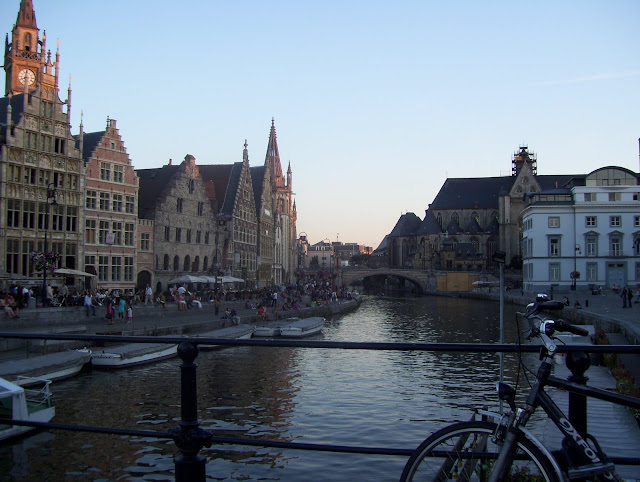
Istanbul is one of the rapidly growing city in the world. It tries not only protect its cultural character came from the Byzantine Period and continued with Ottoman Period and Turkish Republic but also adopt the developing world’s necessities. Cars and motorized vehicles are some of these necessities. It was interesting to see carfree places in such a metropolitan area. I think, it is related with the natural character of this area that I talk about. Because this car-free place is an island.
 The Princess Islands are a combination of nine islands off the Asian coast of Istanbul, in the Sea of Marmara. The name of the islands comes from the Byzantine period, when royal princes and empresses were exiled there. With the introduction of steamboats during the late Ottoman period around the 19th century, these islands became popular resorts for the rich people who built their wooden houses. Jewish, Greek and Armenian communities were a large part of the inhabitants here. Today, the islands are popular tourist destinations for daily excursions especially in the summer time. There are many monasteries and historic buildings on the islands, besides 19th century Victorian style old wooden mansions.
The Princess Islands are a combination of nine islands off the Asian coast of Istanbul, in the Sea of Marmara. The name of the islands comes from the Byzantine period, when royal princes and empresses were exiled there. With the introduction of steamboats during the late Ottoman period around the 19th century, these islands became popular resorts for the rich people who built their wooden houses. Jewish, Greek and Armenian communities were a large part of the inhabitants here. Today, the islands are popular tourist destinations for daily excursions especially in the summer time. There are many monasteries and historic buildings on the islands, besides 19th century Victorian style old wooden mansions.

Motorists are not permitted on the islands except the ones belonging to the local municipality for public works, therefore you have to walk or rent a bicycle or horse-drawn carriage (fayton in Turkish). Istanbul hasn’t a flat topography and as a result of this feature, many planners and transport experts have argued that cycling isn’t suitable for Istanbul’s topography. In addition to this, Istanbul hasn’t had a bicycle culture from past to present.
But after my short trip to Buyukada, I changed my mind. I was in there today. And these summer days are the most crowded time of the island. I and my partner had rented a bike when we came in spring but we had decided to walk in this time to discover the different areas. After crowded, polluted parts of the Istanbul, in Buyukada we felt that we were in another city . Buyukada is an exceptional example of bicycle culture. And it is also a good example to support the sustainable transport in Istanbul. It hasn’t a flat topography too, but its strict transportation policy on not allowing the motorized car in the area had caused to be created a new transportation mode. Today, most of the residents of the Buyukada have their own bicycles and cycling has became the main transportation mode used by inhabitants of it. Second transportation option is the horse-drawn carriage which has a cultural background coming from Ottomans. This transportation mode is mostly prefered by old people and tourists. You can ride bike comfortably in assigned roads for bicycles. And as i mentioned before, topography isn’t flat but cycling had became mostly preferred mode of transportation. It is useful and suitable. Especially in summer times, horse-drawn carriage become dangerous for pedestrians and cyclists, because they are highly used by tourists.
As a result of the sustainable mode of transportation and green, the air quality is better than the Istanbul centre. Forests, private gardens and squares are the open and green spaces in Buyukada. These green spaces help to control microclimate conditions. Tree-lined roads provide shelter for pedestrians and continued walking routes. So we walked easily by following these connected greenways.
It was a good experience to see such a good sustainable transport application in Istanbul. This transportation mode isn’t against to protect the cultural heritage and adopt the necessities in developing world.
My posts appeared in Media
About me
Landscape architect, ecotourism supporter, green traveler, freelance designer, passionate French learner...
Zerrin Hosgor PolatVisited countries
recent posts
CITIES
Featured post
GHENT, BELGIUM - City on the river mouth with its lights
Ghent is a historical city with its art, culture and events. The city's name means 'river mouth' or confluence. Until t...














0 comments